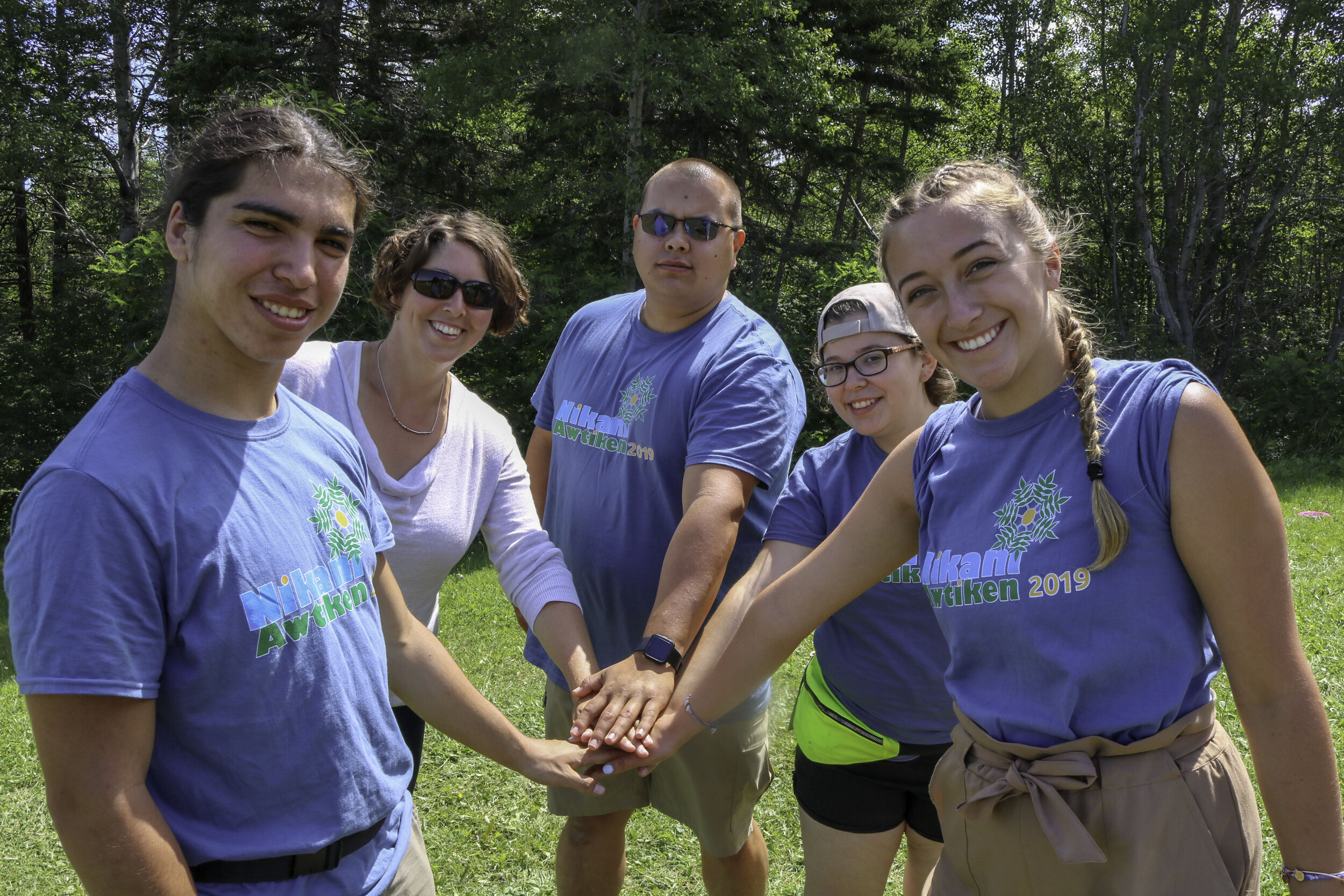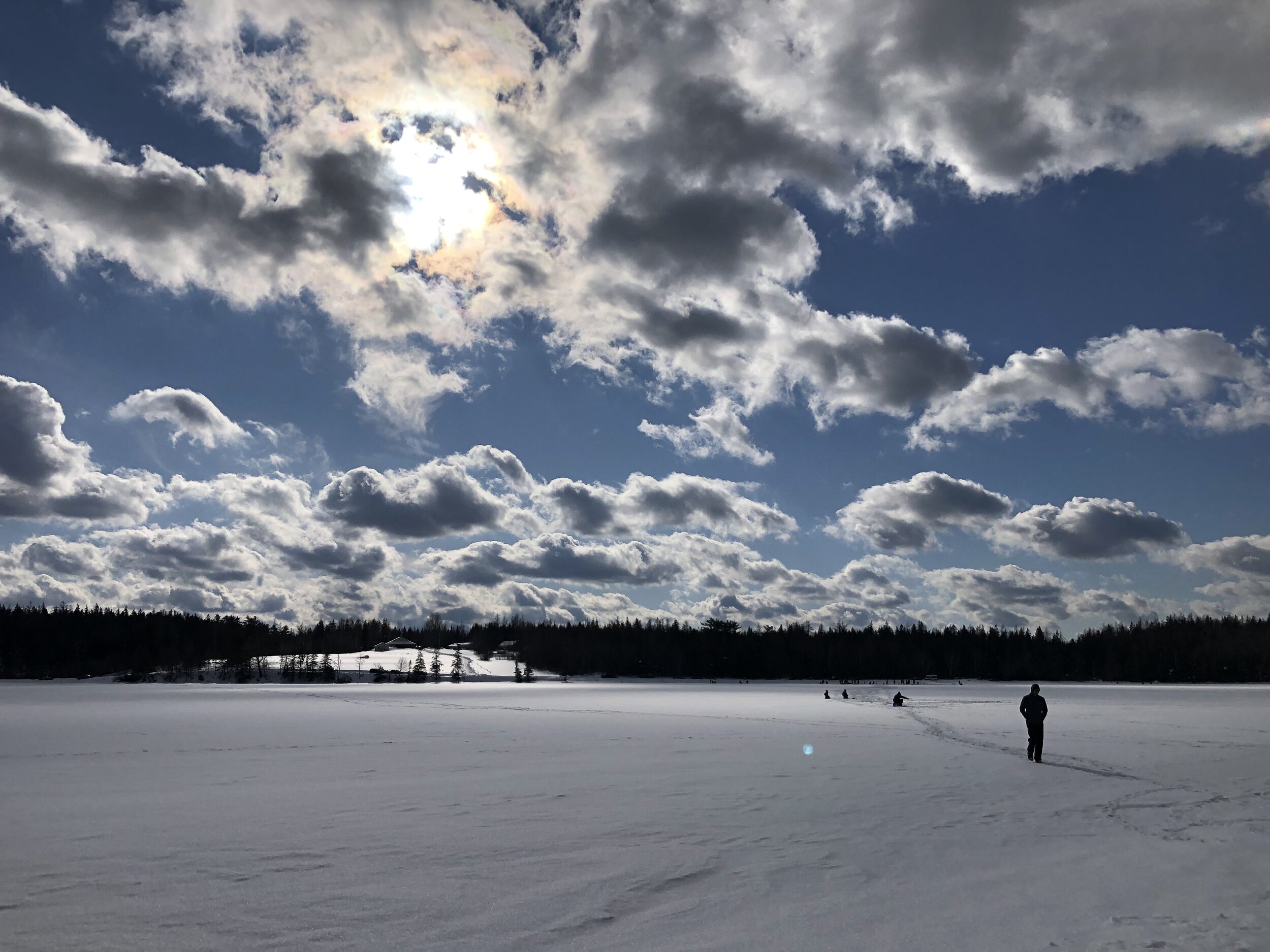Nadine Lefort is the manager of communications and outreach at the Unama’ki Institute of Natural Resources (UINR), associate professor in the Marine Affairs Program at Dalhousie University and is a partner on the Apoqnmatulti'k project.
UINR’s annual Nikani Awtiken Youth Camp
Where did you grow up?
I grew up in Sydney, NS. I’ve lived in many places across the country but I moved back to Unama’ki almost 10 years ago. I am so happy to be back on this coast!
What is a typical day like in this job?
A typical day in my position with UINR is to expect the unexpected. I might start my day writing a report or updating our social media accounts, and following that by joining a meeting to plan a community outreach event. I might spend my time in the afternoon working on an outreach product, like a postcard or a poster. My favourite days are when I am at community events – I love spending time with community members and colleagues, discussing and celebrating natural resources in Unama’ki.
What do you enjoy most about your role as manager of communications and outreach?
The thing I love most about my job is taking messages about natural resources and traditional Mi’kmaq knowledge that are quite complex and making them accessible to community members, either through a simplified message, good translation or a perfect image. To me, good communication means that people feel understood and on board. That is what I enjoy most.
Nadine at the annual UINR ice fishing event
How is your role with Apoqnmatulti’k different from other projects that you’ve been a part of?
The Apoqnmatulti’k project has an openness of co-learning that is different from other projects. Project members openly admit that it’s a learning process, and that is refreshing.
What does Apoqnmatulti’k mean to you?
To me, “Apoqnmatulti’k” means collaboration, and a commitment to co-learning. It’s about collectively working towards a common goal with a focus on helping communities in addition to the collection of tracking data.
Why do you think animal tracking is important?
Understanding as much as we can about animals is key to being good ecosystem stewards. I’ve always believed that learning about animal behaviour is beneficial to us humans, while acting with empathy and understanding is beneficial to animals and their ecosystems.
What is something most people may not know about lobster and eel in the Bras d’Or lake?
They are both delicious!
Elder Albert Marshall and Nadine Lefort
What is something new you learned while working on this project?
A lesson I have learned while working on this project would be the importance of meeting and working together to encourage learning. I have also learned that reconciliation is not a targeted endpoint, but a lifelong process.
What are you most proud of with Apoqnmatulti’k?
I am proud that project members continue to admit that none of us has the answers and that we are all learning together. I appreciate this honesty, and the commitment to continue.
What do you like to do outside of work?
I spend my non-work time with my family on hiking trails, on our bicycles, on NS beaches, and puttering in our backyard.



